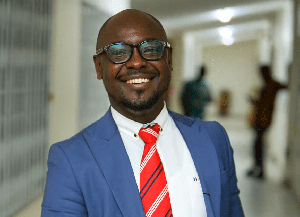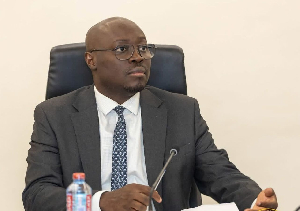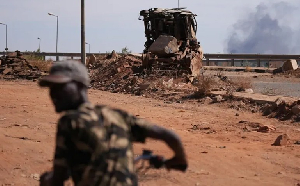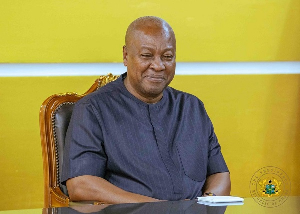Accra, Dec. 7, GNA - The United Nations World Food Programme (WFP) and the United States Agency for International Development (USAID) on Tuesday signed a Memorandum of Understanding (MOU) for 3.9 million dollar to improve the nutrition of Ghanaians
USAID is providing the money to assist WFP provide a safety net of nutrition support to some of the poorest and most vulnerable. Malnourished children, pregnant women and nursing mothers in districts across northern Ghana with the highest malnutrition levels, including People Living with HIV on Antiretroviral Therapy and their families, would receive food and nutrition support.
Mr Ismail Omer, WFP representative in Ghana, who initialled for the organisation, said the WFP had begun a programme to improve food and nutritional security of the people in the three Northern regions who had been severely affected by multiple shocks over the past three years. He said the WFP would buy the required food commodities from Ghanaian producers.
Mr Omer said the programme under which the nutrition support was being provided was the Protracted Relief and Recovery Operation (PRRO), which was aimed at supporting 423,000 people across the three northern regions with relief and recovery activities.
Apart from the nutrition support component for malnourished women and children, the recovery operation will work with the Savannah Accelerated Development Authority (SADA) to provide food for work programmes to address climate change such as deforestation, prevention of soil erosion, tree planting and construction of dugout wells. Other components are food for training, such as capacity building, skills training and income generating activities to sustain other interventions.
The entire budget for the PRRO is nearly 28,000 metric tons of food valued at 22 million dollars. Mr Peter Argo, Deputy Missions Director of USAID, said the contribution of Ghanaian women towards agriculture and socio-economic development was enormous hence the need to prioritize the role of women in solving food security issues.
He said USAID and Ghana were working to ensure gender equality in all programmes including its food security activities and noted that its Agriculture Development and Value Chain Enhancement (ADVANCE) programme had conducted a study into staples and horticulture crops. This, he said, would enable it to better address existing inequalities and identify better intervention for men and women in these value chains, ultimately leading to increased benefits for communities. "Our goal under the feed the future initiative is to help Ghana achieve sustainable food security in close collaboration with the government of Ghana and other development partners. We invest in Ghana's food security with the mindset of creating the kind of food system that will, over time, eliminate the need for humanitarian aid."
The WFP is the world's biggest humanitarian agency fighting hunger worldwide and pursues a vision in which every man, women and child has access at all times to food needed for active and healthy life 7 Dec. 10
General News of Tuesday, 7 December 2010
Source: GNA












